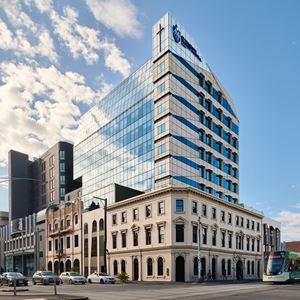
Self Funded Spinal Surgery
At St Vincent’s Private Hospital we empower individuals to take control of their spinal health without relying on private health insurance. Our goal is to provide transparent and effective treatment.
- Home
- Services
- Self Funded Surgery
- Treatments
- Spinal Surgery
Spinal surgery explained
Spinal surgery refers to a range of medical procedures performed to treat conditions affecting the spine, such as herniated discs, spinal stenosis, scoliosis, fractures, or degenerative diseases. Your surgeon will discuss with you the best treatment pathway for your condition.

Why self-fund your treatment
-
Skip the queue
-
Choose your specialist
-
Private hospital care
-
Tailored Care
-
Fast track recovery


Discectomy
A surgical procedure to remove a herniated (slipped) portion of a spinal disc that is causing nerve compression and pain. The goal is to relieve pain and improve neurological function. It can be performed through an open incision or minimally invasively.
Who is discectomy for?
It is typically recommended for patients who experience persistent pain, numbness, or weakness in limbs caused by a herniated spinal disc. It may also be recommended if treatments such as physical therapy, medication, and rest have not provided relief.
Are there different levels of surgery?
Most discectomy procedures only remove 1 disc however some patients may require 2 or more discs removed. This may increase the length and costs of surgery.
What is the recovery time?
Your doctor will advise you on your recovery post-surgery but typically patients will likely start walking within 1-2 days followed by a 2 week period of rest and recovery. A full recovery can take up to 8 weeks.

Laminectomy
A surgical procedure to remove part of the bony roof of the spinal canal (lamina), to relieve nerve compression and spinal stenosis. This procedure is performed to alleviate pain, numbness, and weakness in limbs caused by conditions such as herniated disc, spinal stenosis, and degenerative spinal disorders.
Who is laminectomy for?
Patients who are experiencing pain or numbness that travels through the arms and legs due to damaged vertebrae where other treatments such as physical therapy or pain medications have failed to improve their condition.
Are there different levels of surgery?
Most laminectomy procedures only impact 1 vertebrae however some patients may require 2 or more vertebrae operated on. This may increase the length and costs of surgery.
What is the recovery time?
Your doctor will advise you on your recovery post-surgery but typically patients will likely start walking within 1-2 days followed by a 2 week period of rest and recovery. A full recovery can take up to 8 weeks.
Self-funded spinal surgery
Fee estimates overview
Patients without private health insurance can access St Vincent’s self-funded spinal services. We offer services such as Laminectomy and Discectomy as self-pay options, with faster access to treatment and flexible benefits. Skip the wait and request a free estimated cost below.
Fee Estimate Inclusions
-
Overnight stay in private hospital care
-
Theatre fees
-
Prosthesis and consumables
-
Surgeon fees
Additional costs
As specialists set their own consultation fee, the costs can vary considerably. For a comprehensive fee estimate, note your preferred specialist in your request.
Participating Hospitals
Spinal Surgery
Frequently Asked Questions
Self-funded surgery lets you take control of your healthcare by paying directly for private hospital treatment, even if you don’t have health insurance. Skip the long wait times, set your own schedule, and get back to your normal routine faster
No, private health insurance is not required. Self-funded surgery is a direct payment option that allows you to choose private care even if you don’t have insurance.
You can self-pay using personal savings, an approved payment plan, or, for certain procedures, apply for early Super release to help manage the costs. We’re here to help you find the best option for you.


